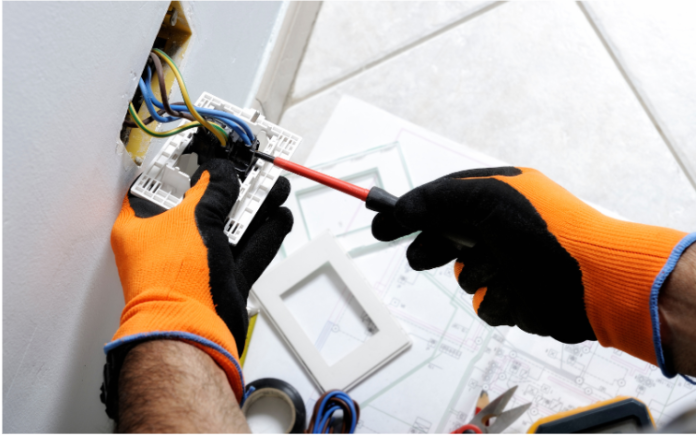An unexpected power failure in Singapore can disrupt daily routines and damage appliances—electrical circuits trip when overload or short circuits occur. Faulty wiring or defective appliances trigger unexpected blackouts.
Begin by inspecting the circuit breaker panel. A tripped breaker signals an overloaded or short-circuited circuit. Flip the switch back to its original position to restore power. If it trips again, unplug appliances from the affected circuit before resetting it.
Loose wiring in sockets or switches contributes to intermittent power loss. Checking for burnt marks or unusual buzzing sounds indicates faulty connections. Avoid handling exposed wires without professional guidance. Engaging an affordable electrician in Singapore ensures repairs comply with safety standards and prevent recurring failures.
If the entire house experiences a power failure, check if neighbouring homes also lack electricity. Widespread blackouts require reporting to the electricity provider. Individual household issues need troubleshooting at the circuit panel or seeking professional assistance.
1. Flickering or Dimming Lights
Lights flicker when wiring connections loosen or circuits overload. Voltage fluctuations affect lighting performance, leading to inconsistent brightness.
Start by tightening bulbs to ensure secure connections. Loose bulbs cause intermittent flickering, especially in older fixtures. If lights continue dimming, replace bulbs with suitable wattage to avoid excessive power draw.
Dimming or fluctuating lights suggest overloaded circuits. Redistribute appliances across different outlets to balance the electrical load. High-powered devices like air conditioners or refrigerators should operate on dedicated circuits to prevent disruptions.
Damaged wiring within the walls creates unstable current flow. Exposed or frayed wires pose fire risks. Seeking assistance from an affordable electrician in Singapore ensures rewiring follows safety regulations and eliminates potential hazards.
2. Frequent Tripping of Circuit Breakers
Circuit breakers trip to protect homes from electrical hazards. When circuits exceed their capacity, breakers shut off power to prevent overheating or fires.
Identifying the root cause helps restore normal operation. Overloading occurs when multiple high-power appliances connect to the same outlet. Reducing the number of devices on a single circuit stops frequent tripping.
Short circuits arise when live and neutral wires touch due to damaged insulation or defective wiring. A burning smell or visible sparks indicate an urgent need for repair. Avoid switching the breaker back on without addressing underlying faults.
Old or faulty breakers trip frequently despite normal usage. Worn-out breakers require replacement to maintain a stable power supply. Engaging an electrician guarantees correct installation and enhances home safety.
3. Electrical Outlets Not Functioning
Dead outlets result from wiring faults or internal damage. Plugging in a working device helps determine whether the outlet receives power.
Check adjacent outlets to identify if an isolated issue or circuit failure exists. If multiple outlets fail, inspect the breaker panel for a tripped switch. Resetting the breaker restores power if no underlying problems exist.
Loose internal wiring affects outlet functionality. Prolonged use causes wear on electrical contacts, leading to unreliable connections. A qualified electrician repairs or replaces malfunctioning outlets to ensure proper operation.
GFCI (Ground Fault Circuit Interrupter) outlets trip when detecting electrical imbalances. Pressing the reset button restores the function. Persistent failure requires an electrician’s intervention to diagnose and rectify wiring faults.
4. Buzzing Noises or Burning Smells from Switches and Outlets
Unusual sounds or odours indicate wiring issues requiring immediate attention and careful electrical repair. Electrical arcing inside outlets or switches generates buzzing noises. Overheating produces a burning smell, signalling potential fire hazards.
Turn off the power supply at the breaker panel to prevent further damage. Inspect outlets and switches for visible signs of charring or melting. Avoid using compromised electrical points until repairs occur.
Loose wiring or faulty components cause overheating. Tightening connections or replacing damaged fixtures eliminates risks. Consulting an electrician ensures proper installation and prevents safety concerns.
5. Non-Responsive Light Switches
Faulty switches hinder lighting control and indicate wiring issues. Worn-out switch contacts cause flickering or non-responsiveness.
Testing with another bulb confirms whether the issue stems from the switch or the fixture. If replacing the bulb does not restore function, the internal switch mechanism may require replacement.
Loose wiring behind the switch affects connectivity. Turning off power before tightening connections enhances reliability. Seeking professional assistance guarantees safe repairs and long-lasting solutions.
6. Electrical Surges and Voltage Spikes
Power surges damage appliances and reduce their lifespan. Lightning strikes, faulty wiring, or unstable grid supply cause sudden voltage increases.
Surge protectors minimise damage by diverting excess electricity away from connected devices. Installing whole-house surge protectors enhances protection against severe fluctuations.
Frequent surges indicate underlying wiring problems. Checking for damaged insulation or loose connections helps identify faults. The professional assessment ensures corrective measures prevent recurring issues.
7. Safety Considerations When Handling Electrical Repairs
Attempting DIY electrical repairs without proper knowledge risks electrocution or fire hazards. Switching off power before troubleshooting reduces dangers. Using insulated tools and avoiding contact with live wires enhances safety.
For complex issues such as rewiring or breaker replacements, hiring an affordable electrician in Singapore ensures proper handling. Professionals follow regulatory guidelines, preventing potential hazards and ensuring system reliability.
Conclusion
Electrical repairs require prompt attention to maintain a safe home environment. Addressing minor issues prevents extensive damage and reduces risks. If troubleshooting does not resolve problems, professional intervention becomes necessary.
Contact 81 Electrical for an affordable electrician in Singapore. Experienced professionals provide efficient solutions, ensuring reliable and safe electrical systems.

